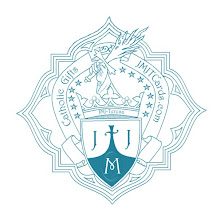MAUNDY THURSDAY
THE NIGHT OFFICE
The Office of Matins and Lauds, for the last three days of Holy Week, differs, in many things, from that of the rest of the year. All is sad and mournful, as though it were a funeral-service: nothing could more emphatically express the grief that now weighs down the heart of our holy mother the Church. Throughout all the Office of Thursday, Friday, and Saturday, she forbids herself the use of those formulas of joy and hope, wherewith, on all other days, she begins her praise of God. The Domine, labia mea aperies (0 Lord, thou shalt open my lips) : the Deus, in adjutorium meum intende (Incline unto mine aid, 0 God): the Gloria Patri, at the end of the Psalms, Canticles, and Responsories:—all are taken away. So likewise are those soul-stirring additions, which have been gradually made, in the different ages; and nothing is left, but what is essential to the form of the Divine Office:— Psalms, Lessons, and Chants expressive of grief. Each Canonical Hour ends with the Psalm Miserere, and with a commemoration of the Death and Cross of our Redeemer.
The name of Tenebrae has been given to the Matins and Lauds of the last three days of Holy Week, because this Office used formerly to be celebrated during the night: and even when the hour was anticipated, the name of Tenebrae was kept up for another reason; namely, that it began with daylight, but ended after the sun had set. There is an impressive ceremony, peculiar to this Office, which tends to perpetuate its name. There is placed in the Sanctuary, near the Altar, a large triangular candlestick, holding fifteen candles. These candles, and the six that are on the Altar, are of yellow wax, as in the Office for the Dead. At the end of each Psalm or Canticle, one of these fifteen candles is extinguished ; but the one, which is placed at the top of the Triangle, is left lighted. During the singing of the Benedictus, at Lauds, the Six candles on the Altar are also put out. Then the Master of Ceremonies takes the lighted candle from the Triangle, and holds it upon the Altar, whilst the Choir repeats the antiphon after the Canticle : after which, he hides it behind the Altar during the recitation of the Miserere and the Prayer, which follows the Psalm. As soon as this Prayer is finished, a noise is made with the seats of the stalls in the choir, which continues until the candle is brought from behind the Altar, and shows, by its light, that the Office of Tenebrae is over.
Let us now study the meaning of these ceremonies. The glory of the Son of God was obscured, and, so to say, eclipsed, by the ignominies he endured during his Passion. He, the Light of the world, powerful in word and work, who, but a few days ago, was proclaimed King by the citizens of Jerusalem, is now robbed of all his honours ; he is, says Isaias, the Man of sorrows,—a leper , he is, says the Royal Prophet, a worm of the earth, and no man; he is, as he says of himself, an object of shame even to his own Disciples, for they are all scandalised in him, and abandon him, yea, even Peter protests that he never knew him. This desertion on the part of his Apostles and Disciples is expressed by the candles being extinguished, one after the other, not only on the Triangle, but on the Altar itself. But Jesus, our Light, though despised and hidden, is not extinguished. This is signified by the Candle which is momentarily placed on the Altar; it figures our Redeemer suffering and dying on Calvary. In order to express his burial, the candle is hid behind the Altar; its light disappears. A confused noise is heard in the House of God, where all is now darkness. This noise and gloom express the convulsions of nature, when Jesus expired on the Cross;—the earth shook, the rocks were split, the dead came forth from their tombs. But the candle suddenly reappear; its light is as fair as ever; the noise is hushed, and homage is paid to the Conqueror of Death.
From The Liturgucal Year
by Dom Prosper Guéranger
Read the Divine Office for Holy Thursday here.
From The Liturgucal Year
by Dom Prosper Guéranger
Read the Divine Office for Holy Thursday here.



